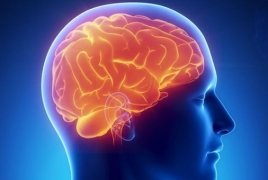Science seeks to control mood via AI-powered brain implants November 25, 2017 - 12:26 AMT PanARMENIAN.Net - Most would baulk at the idea of having a machine reset what they are feeling, especially if it is embedded in the brain. But that is exactly what the US military’s research arm, the Defence Advanced Research Projects Agency (Darpa), wants to make happen. But not in a sinister, mad mind-control scientist way. Darpa is funding two teams of scientists, one at the University of California at San Francisco and the other at the Massachusetts General Hospital at Boston, to develop implants that can help veterans with depression and PTSD. The two teams have begun preliminary human trials of implants that use algorithms to detect mood disorders and deliver electrical impulses to the brain to induce a more positive mental state, The Financial Express reports. Electrodes in the brain are old news. They have been used in the treatment of epilepsy and even Parkinson’s with a fair degree of success. However, they have proved to be of limited success with mood disorders given , in the absence of a system to recognise the onset of bad spell, the only way to ensure efficacy is to supply constant stimulation to the brain, which may not be a very desirable thing in the long run. On the other hand, the San Francisco and Boston implants kick off only when the algorithm identifies a mood disorder or neural activity related to these. The San Francisco worked with six epileptics with implants, and tracked their moods over 1-3 weeks. They then developed the mood-recognition algorithm by comparing information and mapping broad patterns in areas of the brain associated with a particular mood disorder. The Boston team went after brain activity activity associated behaviours present in a range of disorders—such as difficulty in concentrating and lack of empathy—than specific mood disorder detection. Their implant delivered stimuli to the areas that are involved in decision-making and emotion significantly improved the performance of test participants. They were able to reverse forgetfulness and distractedness with their implants. While there are, of course, phenomenal gains for mental illness treatment from such implants—more accurate diagnosis, for instance, since the algo decodes specific physiological clues—there are burning ethical concerns as well. What if the implants induce over-correction of mood? A person can’t then naturally experience grief or sorrow at an instance when that is socially required. Also, what if it goes beyond mood control, if certain electrical impulses induce yet unstudied biochemical changes in the brain? Yerevan will host the 2024 edition of the World Congress On Information Technology (WCIT). Rustam Badasyan said due to the lack of such regulation, the state budget is deprived of VAT revenues. Krisp’s smart noise suppression tech silences ambient sounds and isolates your voice for calls. Gurgen Khachatryan claimed that the "illegalities have been taking place in 2020." Partner news |